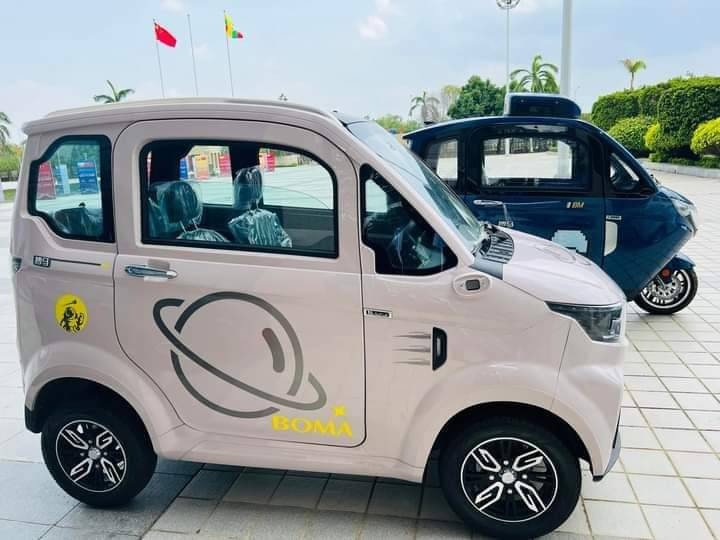Myanmar’s military regime preached the benefits of China-made electric vehicles (EVs) with an editorial in junta-controlled daily newspapers on Tuesday.
Masquerading as an op-ed, the piece was nothing more than a promotional write-up for Chinese EVs including cars, motorbikes, three-wheelers, and bicycles.
Chinese companies introduced their EVs at the Myanmar-China (Lancang) Economic Expo held from May 25-28 in Naypyitaw, the administrative seat of the regime. According to reports, the regime is also planning to sell mini-EVs to government employees by monthly installments.

The editorial lists the specifications of the mini-EVs, saying they cost only a little more than 10 million kyats (around US$ 4,800 at the official exchange rate of 2,100 kyats per dollar) and boast a maximum speed of 55 kilometers per hour. Plugged into a 220-volt socket at home, they take only three to six hours to charge, claims the editorial, which also details the prices and pros of electric motorcycles, three-wheelers and bicycles. Even better, they will be available in the Myanmar market soon, the editorial/advert gushes.
Likely parroting junta boss Min Aung Hlaing, the editorial argues that EVs will save Myanmar huge amounts of dollars spent on imported fuel. It also highlights the eco-friendliness of EVs in terms of carbon dioxide emissions and noise. EVs are lightweight because they have fewer parts, and their maintenance costs are relatively low, the advertorial continues.
However, those who test-drove the mini-EVs at the expo told a different story. The vehicles’ chassis is so poorly built that the frame is likely to disintegrate if driven for long distances, they complained. Meanwhile the battery is of poor quality and only suitable for short city trips. They called the EVs “typical China-made machines”, meaning machines that break down after one day’s use.
But these disadvantages pale beside a more fundamental challenge: How can people get enough electricity to charge EVs when they struggle even to charge their phones?
Government employees also say they can’t afford to buy EVs even by installments because of the high cost of living compared with their small salaries.
The military regime still can’t supply electricity around the clock, even in the commercial capital Yangon, but that hasn’t stopped it from importing EVs and working to build charging stations since last year in a bid to fulfill one of coup leader Min Aung Hlaing’s most persistent fantasies.
Yet despite the junta’s continuous efforts to promote EVs, there is no sign of them growing in popularity among Myanmar people.

















